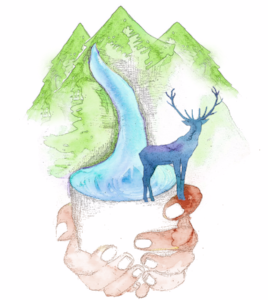Mitigating Human-Elephant Conflict
Elephants are giant treasures known for their beauty, strength and intelligence. With reported numbers at 100 elephants killed per day (U.N., 2015) either by new development, poaching or lack of resources, how do we work to mitigate or even eliminate the human-elephant conflict that is occurring across areas where elephants and humans inhabit?
Here, in the Mwakoma and Mwambiti villages in the Sagalla hills of Kenya, the conflict arises when elephants leave the nearby Tsavo National Park and crop-raid. This conflict poses social, political and economic problems for the local community and sometimes arises to the death of both people and elephants. Dr. Lucy King took on the challenge of mitigating human-elephant conflict in the local area.
After conducting extensive research on elephant behavior, Dr. King found that elephants are wary of foraging near African honey bees. Ultimately, this led to the innovative study of installing 25 beehive fences around the outer boundary of small-scale farms in Mwakoma and Mwambiti to reduce crop-raiding incidents. A 4-year field trial revealed that beehive fences reduced crop-raiding incidents by 80%, and farmers enjoyed the additional benefits from bee colonies pollinating crops and producing honey they could sell. Now Dr. King is project leader for The Elephants and Bees Research Project, which is one of Save the Elephants innovative programs to reduce human-elephant conflict.
As an intern, I feel honored to be a part of the ongoing research project here in the Sagalla hills, Kenya. From mammal monitoring, crop-raiding study, beehive fence monitoring, and helping promote elephant-friendly honey the work is never tiresome. On a personal level, listening to the concerns of local villagers and contributing to research on elephant behavior patterns is enlightening. I encourage everyone to spread the word and get involved in saving these magnificent creatures that roam throughout Africa and Asia.




















